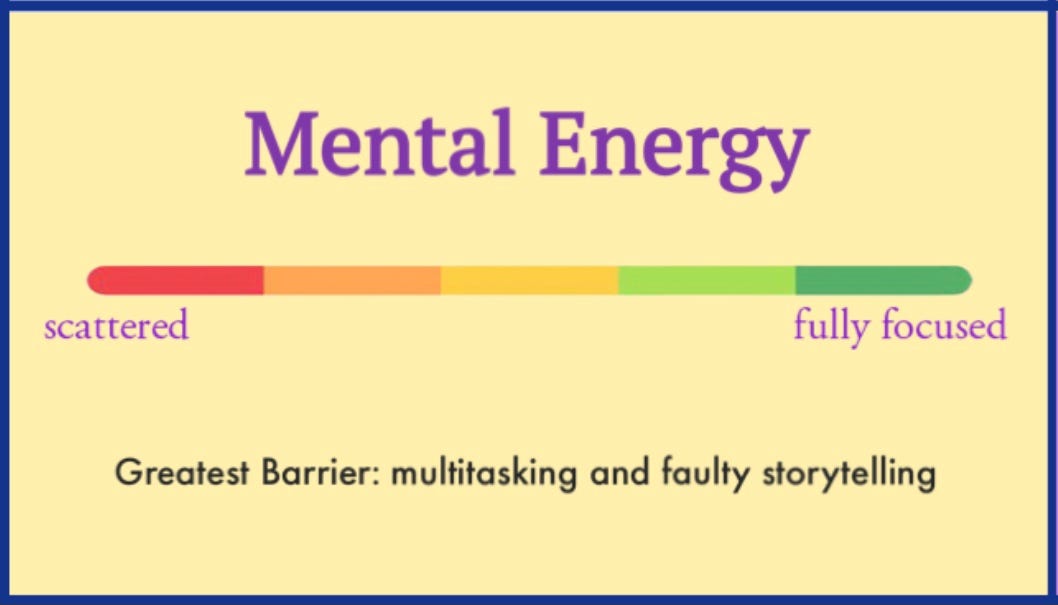Simone Biles: The Epitome of Mental Energy Balance
5 Universal Lessons from Her Inspiring Comeback Story
Women’s gymnastics is largely considered an every four years sport. But I would argue that Simone Biles has raised the profile of gymnastics. Every time she competes, especially since the 2016 Olympic Games, she makes news. The crowds have gotten larger and larger at each competition. That’s why it was hard to believe that her husband, NFL safety Jonathan Owens, said he didn’t know who she was when they first met.
Her resurgence since the Tokyo Games, over the last year, has been closely watched. Her return has left everyone in awe and the world is excited to see her lead Team USA to the Paris Games in a few weeks. She truly is incomparable. To return to the games at the age of 27 is pretty much unheard of in modern-day gymnastics. And to return at the age of 27, after what she endured just three years ago at the Tokyo Games, is absolutely amazing.

But from an energy management standpoint, is her triumphant return all that surprising??
I say no. Let’s break it all down.
If you recall, Simone withdrew from competition due to a case of the twisties. Prior to her withdrawal, I had never heard of such a thing. But the idea of twisties is certainly not new to gymnasts. So what are the twisties?
It’s considered to be psychological with many calling it a mental block. Which brings us to the topic of energy management, specifically mental energy management. As a refresher, mental energy is associated with cognitive processes such as thinking and decision making. In the case of the twisties, gymnasts can’t make the appropriate decisions about their acrobatics, because they have lost their awareness in the air leaving them in a very precarious situation that can lead to serious injury. At the Tokyo Games, Simone’s case of the twisties was severe enough that she did not feel safe performing her routines. Routines that already come with higher degrees of difficulty, which is what makes her performances so spellbinding.

So what triggered this mental block? From what I gathered from her interviews at the time and over the past couple of years, the twisties is something she began experiencing at manageable levels dating back to 2016 but became more unmanageable with the pressure of being the face of the Tokyo Games. NBC as a network was banking on Simone to drive ratings. She felt that pressure immensely. in her interview with the Call Her Daddy podcast, she said after she withdrew “I thought America hated me.” It’s pretty unimaginable to feel as if an entire nation would shun a single, solitary, individual. Yet that is how she felt and I can’t say it was completely irrational. Y’all know how we can be…

Clearly her mental energy was off-balance. So much so that she had to withdraw from one of the most momentous competitions of her career. It potentially could’ve been her final Olympics had it ended the way we all initially expected it to end, with her atop the medal stand. Instead the competition ended on a low note for her and it seemed as if this was how the competitive gymnast chapter of her story was going to end.
Thankfully for her and for her fans, her competitive gymnast career did not end and I’d like to share five takeaways from her story to illustrate for us how to achieve mental energy balance.
Don’t ignore early symptoms. With the benefit of hindsight, we know that Simone was contending with the twisties for years prior to the Tokyo Games. Her experience didn’t get better with time. It got worse. There is a reason why early intervention is recommended for just about every ailment. We may need to take a little time to track frequency and patterns but to assume that it is manageable, without proper guidance, knowing that it can get worse, is ill-advised.
Risks should be taken seriously. Everyone’s risk tolerance varies. But when our mental energy is off, it’s quite possible that we can’t even properly weigh risks. When stakes are high, it’s very possible that emotion can cloud our judgment. The framers of energy management has given clear guidance with respect to our mental energy, Multitask when the outcome does not matter. If the outcome does matter, then do not. If what you are tasked with requires intense focus and you approach it with anything less than intense focus, you do so at your own peril. Simone was not willing to take perilous risks even though her team would be left with a serious void; even though the world was anxiously watching and waiting expecting her to proudly represent Team USA at all costs.
Take an indefinite break. However long it takes to get back into balance is how long it takes. Removing ourselves indefinitely may sound extreme and may not be practical. But being wedded to a particularly timetable may not be helpful. Simone did not know when or if she would return to competing. Returning prematurely increases the chances of setbacks.
Seek professional help. Simone credits working with mental health professionals including a sports psychologist to process all that she had been through. And it turned out to be much more for her to process along with what happened in Tokyo. Mental blocks do not just randomly occur. There is usually something or multiple things going on in the deeper recesses of our minds. Our will to compartmentalize simply may not be enough. Many times it takes a trained professional to help us resolve mental blocks in a careful and deliberate manner.
Return to normal order gradually. Similar to #3, it is ill-advised to go from 0-100 upon returning to the scene of the crime. While it is exciting to go back to “normal,” it is very easy to slip back into old ways. When we are on a break, we are sheltered from the circumstances that brought about the imbalances. We need to give ourselves time to break in the new strategies we learned while we were away. When Simone returned to training she initially talked of big things. While that could be music to the ears of some, her coaches understood differently. They informed her that the approach would essentially be baby steps. While I’m sure she did not forget about her goals, she came to understand that path to achieving those goals will be slow, steady, and intentional.
And now Simone is back with several competitions under her belt since Tokyo and set to return to the summer Olympic games in Paris. I imagine this will be her final visit to the Olympics as a competitor. And I imagine the competitor in her wants to close this chapter on her own terms, not on the involuntary terms she found herself in during the Tokyo Games. The world will be watching and waiting again. This time with rousing support for her comeback and I pray she receives it as such.
Onward to comebacks and Harmonious Balance my friends,
Johanna
**For customized content requests,1:1 coaching and speaking inquiries, feel free to contact me.**






Excellent takeaways for mental health balance!